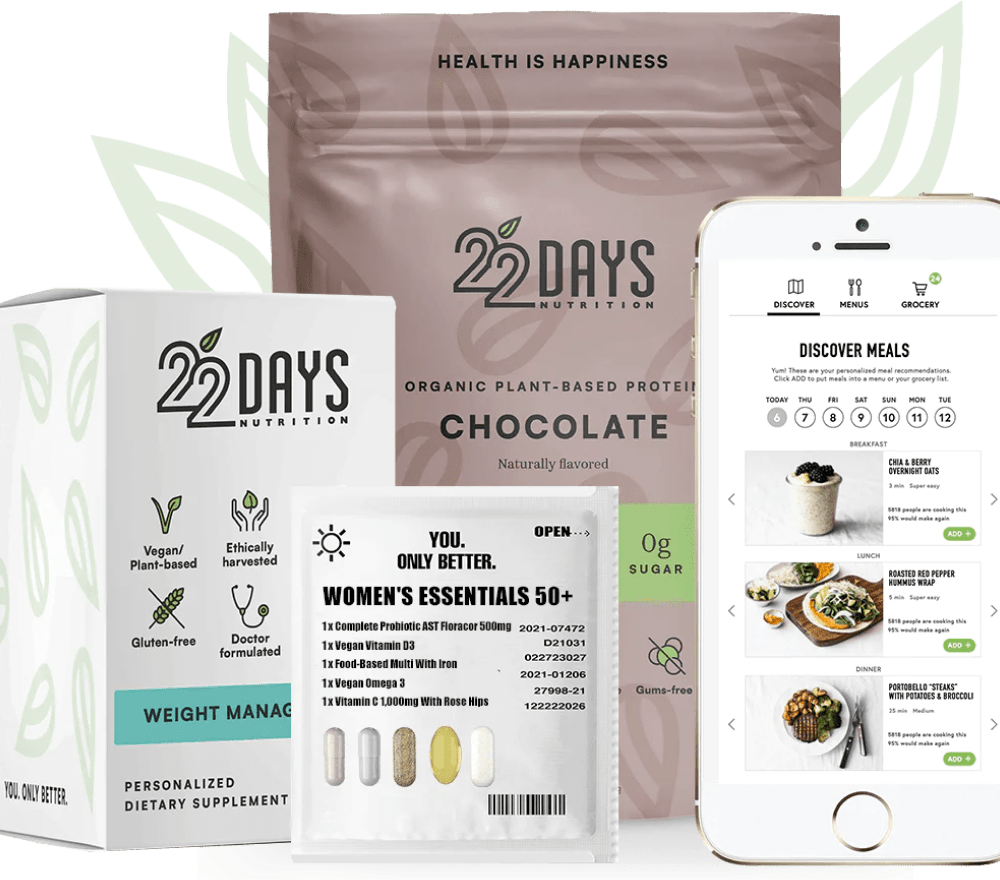10 High-Protein Fruits That Pack A Punch
A “high-protein fruit” seems like an oxymoron—when we think of protein, we don’t usually think about fruit. Although there aren’t any fruits with enough protein to replace your daily protein shake and other meals, it’s great to know about the fruits that are highest in protein.
Fruits are a delicious treat that most of us eat anyways, so we might as well be picking some that bring us closer to our protein goals! The following list covers fruits with the most protein—the fruits that, according to the USDA, pack the biggest protein punch.
Guava
Per 1 Cup: 4.21g protein
Guava tops out our list of high-protein fruits. Not only does guava give you a relatively large protein boost, it contains a sky-high amount of vitamin C and solid amounts of vitamin A, iron, magnesium, and antioxidants that help slow the aging process.
Avocado
Per 1 Cup: 2.9g protein
We know avocados as a great source of healthy fat, but they’re also one of the highest protein fruits. They also pack a solid amount of potassium. Additionally, the monounsaturated fatty acids in avocados help curb bad cholesterol.
Jackfruit
Per 1 Cup: 2.84g protein
As far as fruits go, jackfruit is a great source of protein. It’s also high in vitamin B6, which is a nutrient our bodies need to metabolize protein. Jackfruit isn’t like most other fruits – it’s not sweet and actually has a meat-like texture, which is why it makes a delicious meat replacement for plant-based recipes.
Since it’s one of the few fruits high in protein, low in sugar, jackfruit is a great option if you’re looking to lose weight without skimping on tasty meals!
Prunes
Per ½ Cup: 2.44g protein
We all know prunes for their fiber content. But, people often overlook the amount of protein that prunes pack, despite their small size. However, definitely be careful with the amount of prunes you eat if you don’t want to make frequent trips to the bathroom!
Apricots
Per 1 Cup: 2.31g protein
Apricots (both dried or fresh) are a great protein-rich fruit when you’re craving a sweet snack. They taste great with dried nuts or just on their own. Additionally, apricots contain high levels of vitamin A and C—two powerful antioxidants that are essential for your health!
Kiwi
Per 1 Cup: 2.05g protein
Kiwis not only pack a solid amount of protein, but they’re rich in vitamin K, C, and E. Although 2 grams might not seem like a lot of protein, it’s better than nothing! When paired with another large protein source, they can provide a great protein-infused, vitamin-rich addition to your diet!
Blackberries
Per 1 Cup: 2g protein
Blackberries are an incredibly versatile fruit—eat them as a snack, blend them in a smoothie, or toss them on top of a granola bowl. They have relatively high levels of protein, and they’re loaded with fiber, vitamins (A, C, E, and K), potassium, iron, calcium and anthocyanins.
Grapefruit
Per Cup: 1.77g protein
Grapefruit might seem like mostly water, but it's actually one of the more protein-rich fruits, with nearly 2g of protein per serving. Grapefruit is also a source of vitamin C and biotin, both of which boost skin health. It's also lower in sugar—a great option if you’re looking to lose weight!
Oranges
Per 1 Cup: 1.7g protein
Not only are you boosting your immune system with Vitamin C when eating oranges, but you’re getting a boost of protein as well!
Cherries
Per 1 Cup: 1.6g protein
Inflammation, arthritis, and quality of sleep—cherries are great at improving these three things. Additionally, at 1g of protein per ¼ cup, they’re a protein-rich fruit that can easily serve as a snack or as an add-on to oatmeal or yogurt.
Cantaloupe
Per Cup: 1.5g protein
As far as melons go, cantaloupe packs some unexpected protein. Not only that, but they’re full of vitamins A, C, and beta-carotene—all nutrients that our body can always use! It’s also one of the sweeter fruits on this list, making it a delightful treat.
Recipes Featuring High-Protein Fruits
Bottom Line
While these are the most high-protein fruits out there, don’t go crazy on the sugary ones. Even though they are natural sugars, it’s still not the healthiest choice to consume them in large amounts. Try to balance your meals and snacks to pair fruit with other protein-rich sources (nuts, protein shakes, tofu, etc.).





